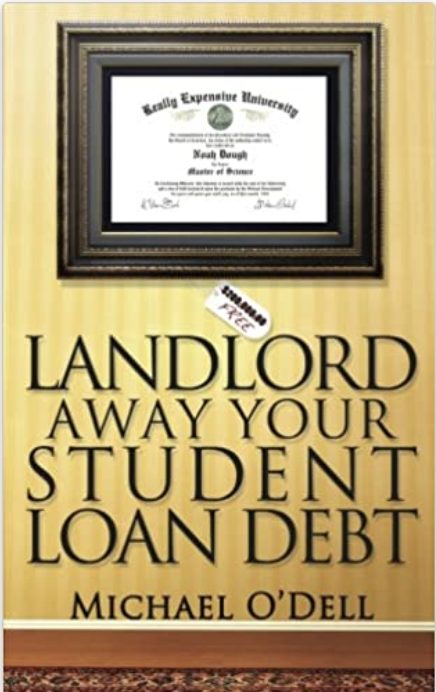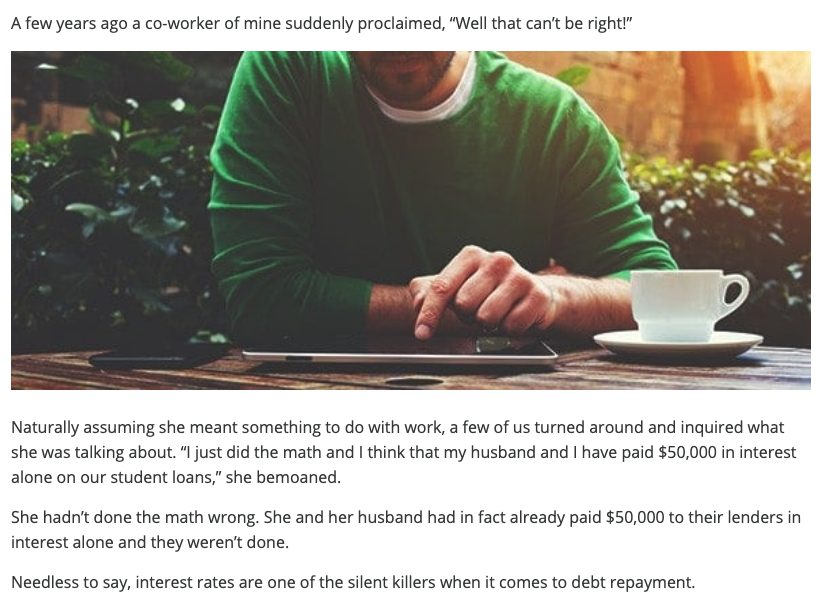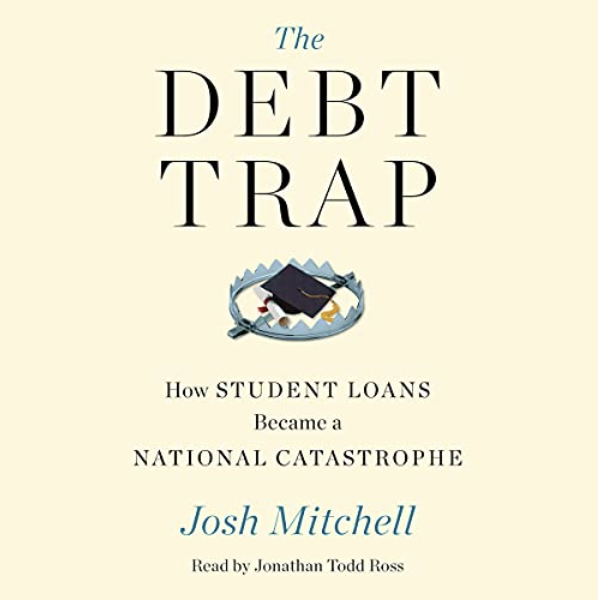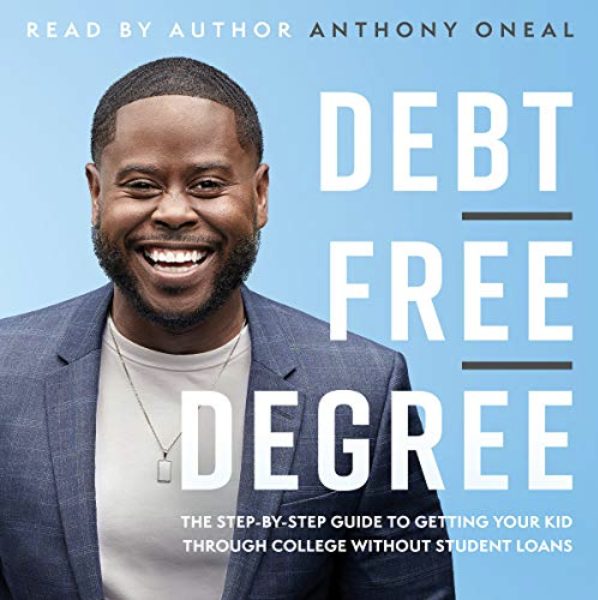How can I get rid of my student debt?

If you have student debt, the two worst things you can do is not pay it off — or pay it off according to your lender's required schedule. Today's the day to get smarter about your student loans and how to make them disappear as soon as possible. Tweet

Highlights
Student debt is your permanent record of college overcharges. Too bad they don't offer a course in debt management.
You can ask for forgiveness—although it's your college that should be begging you for mercy.
For many students, the most valuable but hardest lesson learned from college has nothing to do with their major; it’s about the crippling effect of debt on one’s future.
Once you know that feeling of fighting to keep your head above water, you (hopefully) know that you never want to do that again.
Not for a car. Not for a boat. Not for a vacation. Not for a wedding. Not for a house.
Of course, none of this hard-earned wisdom will help you deal with the mountain of student debt that’s already piled up on your back.
There’s no space space when it comes to college debt.
Although we can’t wave a magic wand and make that student debt disappear for you, we can offer some tricks like these that will help it go away faster:
1. Make interest your enemy
-
- First, consider this story from TaxAct.com:

- Now do everything you can do pay as little interest as you can:
- If you’re still in school, start making interest-only payments now even if you are not required to make your first payment until after you graduate. Here’s why: Even though you are not required to make payments until a later date, interest probably begins accruing on your account when you accept the loan. That means that if you wait to make your first payment until after you graduate, your loan amount has actually increased by the amount of interest you owe for the period before graduation and by the time you make your first payment you will be paying interest on both the amount you borrowed and the interest that accumulated before that first payment. And now do you see how the couple in the story got to $50,000 in interest?
- Pay 1/2 your required payment twice a month. So if you owe $500 at the end of the month, send one check for $250 in the middle of the month and another check for $250 at the end of the month. Your payment monthly is the same, but by paying every two weeks you will actually end up making 13 full payments by the end of the year instead of 12 full payments since there are 52 weeks in a year and your will be making 26 $250 payments or a total of 13 monthly payments. And over the years, those extra payments every year will really add up.
- Round up every chance you get, then tell your lender to apply the extra amount in your payment to the principal or amount of your debt. If you don’t tell your bank to apply the extra dollars to the amount of your debt they will apply it to your future payments and therefore accumulating interest, instead.
- First, consider this story from TaxAct.com:
2. Use this article from NerdWallet to find out if you can get some or all of your student debts forgiven.
As you read this article, take its main theme (highlighted in orange below) to heart:









